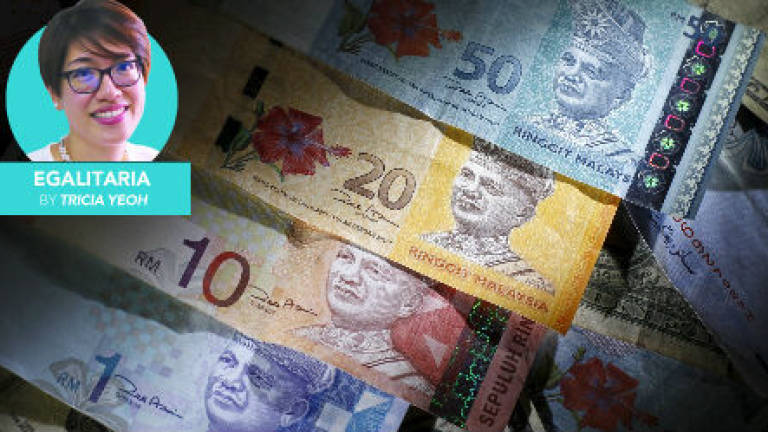Taxing federal-state relations

EARLIER this month, the Sarawak state government decided to quit the Malaysian Tourism Board, following the federal government's introduction of a new tourism tax that would affect all hotels across the country, stating it already had its own Sarawak Tourism Promotion Board.
The Sarawak tourism minister claimed that the tourism tax introduced at the federal level was done without prior consultation with the state government. The Sabah tourism minister responded similarly, saying they did not agree with the proposal.
These reactions initially seemed ridiculous to those who were following the passage of the Tourism Tax Act 2017 in Parliament in April, since most Sabah and Sarawak parliamentarians did not register their objections at the time. Parliament is the most appropriate avenue for elected representatives to air their disagreements with a piece of legislation, and they should have surely blocked it there and then instead of allowing it to pass and much later be disgruntled about it.
It is certainly the responsibility of parliamentarians to represent their constituents' views in the august house, but according to the Sarawak tourism minister, the bill was brought up hastily and it was the last of eight bills debated in Parliament at 5am. If this is true, it does beg the question of whether parliamentary procedures should be refined and hence, whether the Speaker ought to consider a more reasonable time and manner in which new bills are brought up for debate and passage.
That said, this incident is the latest in characterising what has become a rather strained relationship between the federal government and the Sabah and Sarawak state governments. In this particular case, it also presented a potential legislative conflict.
Although tourism falls under the "Federal List" in the ninth schedule of the Federal Constitution which sets out the different jurisdictions of each level of government, meaning that the federal government has complete say in anything related to tourism, at the same time "lodging houses and hotels" come under the purview of the Sarawak and Sabah Local Government Ordinance 1961 Section 49(46)(i) that will be subject to the taxes imposed by the federal government.
To reiterate what has already been widely discussed in public, this new tourism tax will take effect on July 1, and all forms of hotel accommodation nationwide will charge between RM2.50 and RM20 daily. Both Sabah and Sarawak are popular tourist destinations for both local and foreign visitors and would naturally feel that the tax would affect their competitiveness vis-à-vis neighbouring cities. The tourism sector plays a major role in the economies of both states, contributing an estimated 9-10% to their state GDPs separately, and this has been expected to grow further.
In fact, some argue that this would be a duplication of tourism taxes imposed on industry players. The Sabah government, for example, already collects a similar tax – all municipal councils in the state including the Kota Kinabalu City Hall impose between RM40 and RM140 a month a room for hotels based on their occupancy. This is also the case in other state authorities like Penang, Langkawi and Malacca, all of which also have levies for tourist accommodation.
The tax will likely affect the tourism sector of Malaysia as a whole, which economists and policymakers should take seriously. Tourists are sensitive to changes in price, and they would invariably look to other destinations if costs increase too rapidly. For the hotel and lodging industry, this is an additional unnecessary cost to business, which they would find increasingly difficult to manage in an already tough economic climate.
In the case of Sabah and Sarawak, this incident has given cause to the Sarawak tourism minister to urge the federal government to respect the Malaysia Agreement 1963, the document that outlines the rights to be accorded to both states at the time of Malaysia's formation. Although nothing in the agreement explicitly mentions tourism, the 18-point agreement (for Sarawak) and 20-point agreement (for Sabah) spell out the rights to safeguard the autonomy and special interest of the two states.
In his personal correspondence to the British prime minister, Lord Cobbold, who led the committee mandated by Malaya and Britain to explore the possibility of merging North Borneo, Sarawak and Singapore with Malaya, expressed concerns that "Kuala Lumpur might make a mess of the Borneo territories in the early years" (March 9, 1962). To the Malaysian citizens in Sabah and Sarawak, Lord Cobbold may have suspected right, and not just in the early years.
Although the spat over the tourism tax has apparently been resolved at the Cabinet level, the recent incident opens a very public window into the sometimes uncomfortable relationship between Peninsular Malaysia and Sabah and Sarawak.
More urgent and immediate to address, however, is the duplication at federal and state levels. Some questions that the federal government will need to address for the sake of the hotel industry's business competitiveness and survival in the immediate future are: Are visitors to hotels going to be taxed twice for the same room on a single night? Have forecasts been done on how this will affect the tourism industry and tourist arrivals into the country, and what do the numbers say? Finally, how will this affect Sabah and Sarawak specifically, whose local economies depend heavily on tourism?
Comments: letters@thesundaily.com